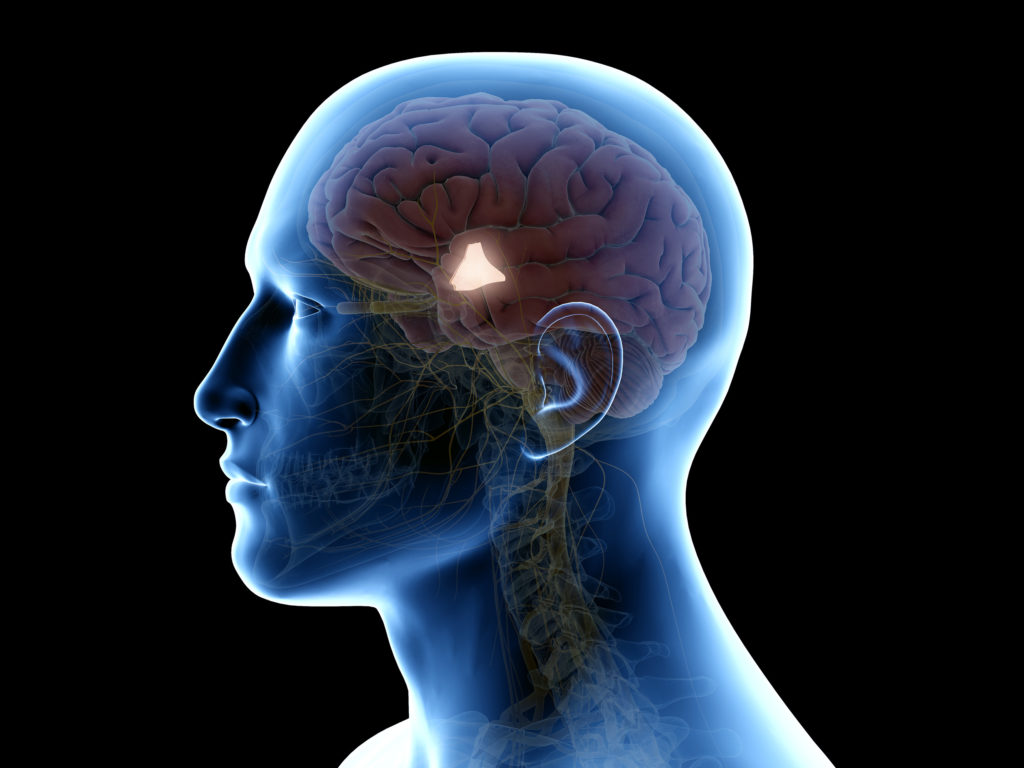How Many Months Babies Will Stop Having Prob With Gas
The endocannabinoid system is fundamentally of import to the regulation of digestive processes including appetite, salivation, hunger, and satiety. Cannabinoid receptors are widely distributed throughout the digestive system, as well as in the brain regions considered to exist crucial to the gut-encephalon axis.
For some people, introducing extra cannabinoids to the finely-tuned endocannabinoid system of the gastrointestinal (GI) tract (the scientific term for the digestive arrangement) can have positive effects. This is specially truthful in individuals suffering from certain gastrointestinal disorders, including Crohn's, inflammatory bowel disease (IBD), and irritable bowel syndrome (IBS).
The endocannabinoid system is circuitous and finely-tuned
In people who lack appetite, cannabis can be all that is needed to induce ravenous hunger. This can be highly benign for people suffering from certain illnesses that impact the appetite, from cancer to eating disorders themselves, as well as otherwise-salubrious individuals whose ambition loss is due to stress or other factors.
On the other hand, in some individuals, the effect of introducing extra cannabinoids to the GI tract is disruptive and tin can cause a range of unusual and unexpected symptoms. In rare cases, cannabis can cause an acute vomiting syndrome known as cannabinoid hyperemesis syndrome, likewise as potentially causing acute pancreatitis.
Positive effects of cannabis use on the GI tract
Multiple studies accept demonstrated that cannabis can be helpful in the management of, IBD, IBS, fibromyalgia, Crohn'southward, and cancer-related anorexia and cachexia (ambition loss and musculus wasting). The first three conditions are even speculated to be a result of clinical endocannabinoid deficiency (CECD), a condition in which the individual does not produce enough cannabinoids or cannabinoid receptors. These diseases appear to be promoted past spinal, peripheral and gastrointestional mechanisms, and the research suggests that cannabinoids tin can block these mechanisms.

In general, cannabinoids may decrease inflammation in inflammatory bowel illness. They are also known to reduce abdominal motility (basically, to reduce the speed at which affair passes through the intestine) and fluid secretions caused by inflammation, which helps to soothe nausea and preclude airsickness and diarrhoea.
How does cannabis stimulate the ambition?
Unremarkably, hunger pangs are generated when the breadbasket gets empty. A hormone called ghrelin is released, which stimulates the vagus nerves of the GI tract and travel upward to the encephalon along the gut-encephalon axis to reach the hypothalamus, where the hunger pangs actually originate.

In creature studies, constructed THC activates the ghrelin receptors, sending signals forth the gut-brain axis to the brain regions responsible for issuing sensations of hunger (particularly the hypothalamus) and ultimately causing hunger pangs even if the tummy is not empty.
Negative effects of cannabis apply in the GI tract
At the contrary end of the spectrum, cannabis apply can sometimes cause unpleasant digestive problems. In extremely rare cases, it is thought to cause certain serious and debilitating conditions. Generally, this phenomenon appears to bear upon chronic users that have used cannabis heavily for several years.
Cannabinoid hyperemesis syndrome
Cannabinoid hyperemesis syndrome causes cyclic airsickness, and a compulsive demand to breast-stroke to try to relieve the sensations of nausea and needing to vomit. It typically occurs in those that have used cannabis heavily for numerous years.

The few patients reported to have been affected by this condition sought medical treatment for acute vomiting and nausea after a period of heavy and protracted cannabis employ, leading the authors of the case studies to conclude that cannabis was the cause of the problem.
Although controversial and little-studied, this condition now numbers over 2 dozen case reports, all of which are remarkably consistent, and all of which strongly implicate cannabis.
Most case reports accept fabricated no try to explicate the mechanism underlying this plainly-paradoxical side-consequence of heavy and prolonged cannabis use. Just at least one study hypothesized that the syndrome may occur due to the result of THC on gastric motility, which is thought to potentially lead to delayed gastric emptying.
Cannabis-induced acute pancreatitis
As well as cannabinoid hyperemesis syndrome, cannabis has now been linked to a handful of cases of acute pancreatitis—although over again, the clan is shaky, and most of the example reports involve individuals who also smoked tobacco heavily for multiple years.
There are now around 18 reports of individuals with astute pancreatitis (inflammation of the pancreas), whose conditions are ultimately blamed on cannabis due to heavy utilise in the period leading upwards to seeking handling. In one example, the patient was observed for several weeks, and it was eventually found that his condition worsened afterward each time he smoked cannabis (which was brought to him at the hospital in secret by friends).
Therefore, it does seem that cannabis at least has a role to play, although information technology may also be that these individuals have a pre-existing condition which is somehow being exacerbated by consumption of cannabis. Or it may be that the effect is dose-dependent or depends on the activity of other signalling molecules.
Indeed, a recent written report into anandamide levels in rats with pancreatitis plant that anandamide could either reduce or increment the severity of the pancreatitis, depending on whether it was administered before or after administration of caerulein. Caerulein is a decapeptide known to influence gut movement and fluid secretions, and information technology'south also used to induce pancreatitis in experimental animal models.
Why do some people experience digestive problems with cannabis?
It is not clear why some people written report these seemingly-contradictory furnishings of cannabis use, and information technology is not proven that cannabis is indeed the underlying cause. However, the sheer corporeality of anecdotal reports does tend to imply that cannabis apply is in some way associated with the phenomenon.
One potential avenue of enquiry is other pre-existing conditions that can cause digestive bug, which may be exacerbated by cannabis use. For example, chronic stress is known to crusade many sufferers to experience ambition loss, which is also ordinarily treated with cannabis. Many anecdotal reports of heavy cannabis use with appetite loss besides involve symptoms of stress. Also, it is known that both cannabis apply and chronic stress can change the product and transmission of the "hunger hormone", ghrelin.
Several factors might determine the likelihood of experiencing negative effects. Obvious considerations are dose, consistency and duration of cannabis utilise. But genetic differences between individuals might too exist a factor. Often, a single mutation to a unmarried factor can cause an individual to experience the reverse of what is deemed "normal".
The potential negative effects of cannabis may sometimes exist underreported by individuals that experience them. This may be due to fear of sentence or punishment, peculiarly in societies where cannabis remains illegal. Simply it may also be due to the pervasive trend for blind faith in cannabis' healing properties and complete deprival of annihilation that runs counter to that argument.
However, it is important that we move away from this trend, in club to present an unbiased picture show of the truthful potential that cannabis has to offer, along with its limitations and contraindications.
Cannabis truly does have numerous remarkable properties and a broad application inside medicine, but it is disingenuous to country that it has absolutely no potential to cause unpleasant and debilitating side-effects in some individuals.
However, these side-effects are typically balmy. Although in detail cases they may become severe, this appears to be limited to a tiny fraction compared to the total number who swallow information technology regularly without detriment, for either recreational or medical reasons.
-
Disclaimer:
This article is not a substitute for professional medical communication, diagnosis, or handling. Always consult with your doctor or other licensed medical professional. Practise not delay seeking medical communication or disregard medical advice due to something you lot have read on this website.
Source: https://sensiseeds.com/en/blog/how-does-cannabis-affect-the-digestive-system/
0 Response to "How Many Months Babies Will Stop Having Prob With Gas"
إرسال تعليق